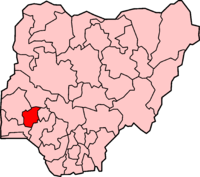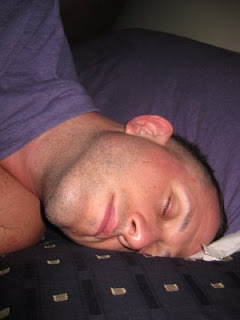
Magdalene is 32 years old and married with 3 children. She sells provisions, drinks, wine, and cosmetics. Magdalene needs the loan amount of N50,000 to purchase more products to sell. She hopes to meet the demand of her customers. She says thank you to all who made this loan possible.
 This is Magret S. Thoronka. Magret was born in Bafodia, about eighteen miles from Kabala. She is twenty-eight years old. She is married to a teacher. They have four children together. Magret sells cotton and ground-nuts. She has been in this business for six years. Magret is requesting a loan of Le 2,000,000. This will be her very first loan from SMT. With this loan, Magret will expand her business by buying more goods to add to her current stock. She will use the loan to buy cotton and ground-nuts. She will also use some of the loan for transportation and other expenses relating to her business. She buys the ground-nuts from a make-shift business center, or “luma,” called Bamoi, about 160 miles round-trip from Makeni. She buys the cotton from Freetown, Sierra Leone’s capital city, a 390 mile round trip from Makeni. A bag of ground-nuts costs her Le 180,000 at Bamoi, and a piece of cotton costs her Le 25,000 in Freetown. She estimates that she’ll be able to get a least five bags of ground-nuts and thirty-six pieces of cotton with the loan. Although her business is doing well for Magret on the whole, she does, face one great challenge: bad debtors. Some of her customers refuse to pay her on time; some do not repay their debts at all. This instills fear in her as a businesswoman, making it difficult for her to know who to trust and who not to trust. With this loan she receives from SMT, Magret is expecting a vast improvement in her business and an increase in the amount of profit she makes. An increment in profit means making her life a happier one and generating additional business.
This is Magret S. Thoronka. Magret was born in Bafodia, about eighteen miles from Kabala. She is twenty-eight years old. She is married to a teacher. They have four children together. Magret sells cotton and ground-nuts. She has been in this business for six years. Magret is requesting a loan of Le 2,000,000. This will be her very first loan from SMT. With this loan, Magret will expand her business by buying more goods to add to her current stock. She will use the loan to buy cotton and ground-nuts. She will also use some of the loan for transportation and other expenses relating to her business. She buys the ground-nuts from a make-shift business center, or “luma,” called Bamoi, about 160 miles round-trip from Makeni. She buys the cotton from Freetown, Sierra Leone’s capital city, a 390 mile round trip from Makeni. A bag of ground-nuts costs her Le 180,000 at Bamoi, and a piece of cotton costs her Le 25,000 in Freetown. She estimates that she’ll be able to get a least five bags of ground-nuts and thirty-six pieces of cotton with the loan. Although her business is doing well for Magret on the whole, she does, face one great challenge: bad debtors. Some of her customers refuse to pay her on time; some do not repay their debts at all. This instills fear in her as a businesswoman, making it difficult for her to know who to trust and who not to trust. With this loan she receives from SMT, Magret is expecting a vast improvement in her business and an increase in the amount of profit she makes. An increment in profit means making her life a happier one and generating additional business. and my third loan is in Paraguay...
 The group "Mujeres Emprendedoras" is from the city of Limpio. This group was formed with the help of a woman that assited group forming meetings in the city of Limpio. The group had four meetings before requesting the loan where all interested members looked into the program "Comite the Mujeres Emprendedoras." In these meetings, the women shared their experiences with their businesses. The first meetings were attended by 17 women, 16 of whom agreed with the responsibilites of the group. They are currently in their ninth cycle of the program and have 17 members. The loan will be used by the various members to purchase tools for their work or to purchase merchandise or prime materials to make the products which will eventually be sold. The majority of the members of the group dedicate themselves to their independent work such as: sale of food, clothing, sliver jewelry, fruits and groceries. Their specific businesses are the following: 1- Lilian Noelia Ocampos Lopez - Sale of groceries 2-Raquel Arguello Alarcon - Sale of clothing 3-Teresa Pino Rodriguez - Sale of clothing (not in this picture) 4-Maria Lourdes Coronel Duarte - Sale of drinks 5-Jessy Evelin Ocampos Lopez - Sale of coal 6-Ceferina Fernadez Vera - Sale of clothing 7-Maria Vera Alfonso - Sale of hardware 8-Delia Mercedes Rodas de Alarcon - Kiosk 9-Albina Torres Isasi - Sales (not in this picture) 10-Petrona Noemi Barrios de Paredes - Sale of vegetables 11- Nelba Antonia Gonzalez Torres - Sale of hardware 12-Cintia Carolina Alarcon - Sale of clothing 13-Valentina Fleitas de Alarcon - Sale of candies 14-Carolina Beatriz Ruiz Diaz - Sales 15-Eloiza Alarcon Vera - Sale of clothing 16-Norma Liliana Gonzalez Nuñez - Sale of clothing 17- Nidia Esmilce Lopez - Sale of food
The group "Mujeres Emprendedoras" is from the city of Limpio. This group was formed with the help of a woman that assited group forming meetings in the city of Limpio. The group had four meetings before requesting the loan where all interested members looked into the program "Comite the Mujeres Emprendedoras." In these meetings, the women shared their experiences with their businesses. The first meetings were attended by 17 women, 16 of whom agreed with the responsibilites of the group. They are currently in their ninth cycle of the program and have 17 members. The loan will be used by the various members to purchase tools for their work or to purchase merchandise or prime materials to make the products which will eventually be sold. The majority of the members of the group dedicate themselves to their independent work such as: sale of food, clothing, sliver jewelry, fruits and groceries. Their specific businesses are the following: 1- Lilian Noelia Ocampos Lopez - Sale of groceries 2-Raquel Arguello Alarcon - Sale of clothing 3-Teresa Pino Rodriguez - Sale of clothing (not in this picture) 4-Maria Lourdes Coronel Duarte - Sale of drinks 5-Jessy Evelin Ocampos Lopez - Sale of coal 6-Ceferina Fernadez Vera - Sale of clothing 7-Maria Vera Alfonso - Sale of hardware 8-Delia Mercedes Rodas de Alarcon - Kiosk 9-Albina Torres Isasi - Sales (not in this picture) 10-Petrona Noemi Barrios de Paredes - Sale of vegetables 11- Nelba Antonia Gonzalez Torres - Sale of hardware 12-Cintia Carolina Alarcon - Sale of clothing 13-Valentina Fleitas de Alarcon - Sale of candies 14-Carolina Beatriz Ruiz Diaz - Sales 15-Eloiza Alarcon Vera - Sale of clothing 16-Norma Liliana Gonzalez Nuñez - Sale of clothing 17- Nidia Esmilce Lopez - Sale of food

















 Of course I partook in some local cuisine. This becomes much easier with the help of beer. This food was actually pretty yummy, even if does not look or sound good. Here we see a giant snail and some bush meat (Ok, this is called grasscutter, described to me as a giant rat).
Of course I partook in some local cuisine. This becomes much easier with the help of beer. This food was actually pretty yummy, even if does not look or sound good. Here we see a giant snail and some bush meat (Ok, this is called grasscutter, described to me as a giant rat).







 When I was visiting Akwa Ibom, we stopped to look at the yet to be completed shopping and business center called Tiraba. It is huge!
When I was visiting Akwa Ibom, we stopped to look at the yet to be completed shopping and business center called Tiraba. It is huge!




















